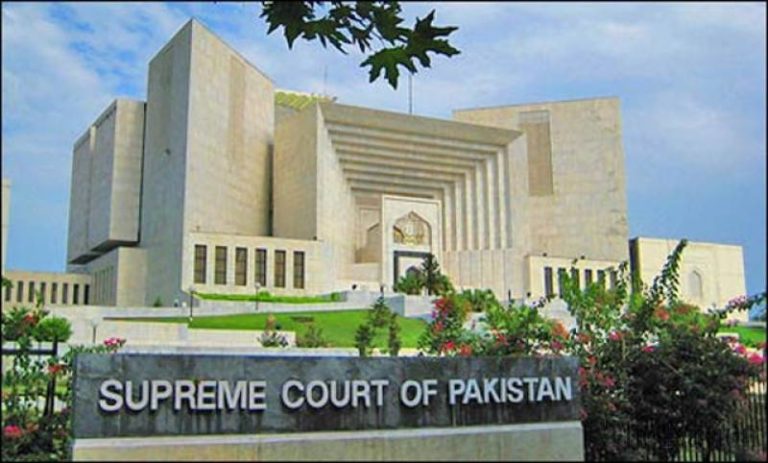Verdicts given on merit not prejudice: Chief Justice of Pakistan
Pakistan Press Club KARACHI: The Supreme Court on Monday directed the Sindh chief minister and former city mayor to appear before the court over the government’s failure to supply potable water to citizens and lack of treatment of raw municipal and industrial sewage being discharged into the sea.
Hearing the petition regarding provision of clean drinking water and safe environment to citizens of Sindh, an SC three-member bench, headed by Chief Justice Mian Saqib Nisar, observed that the judiciary is the custodian of the Constitution and it has to fill in the gap when the executive fails to deliver.

The court observed that judges are not biased against any individual and issue judgments strictly on merit irrespective of the consequences whether anybody likes it or keeps saying why the judgment was passed against him.
The CJP said the judges have taken an oath to act in accordance with the law and the Constitution. It observed supplying pure water to citizens is the duty of the state, adding the court will hear the issue on weekly basis if necessary.
The court observed that people could be infected with serious diseases including Hepatitis C due to contamination of water. The court observed that rights of citizens on health and education will not be compromised and they will be enforced at all costs.
On the court’s directive about screening the judicial commission’s video on the quality of potable water in the assembly, the Supreme Court observed that the Speaker Sindh Assembly did not comply with the directive.
The bench observed that judicial commission’s video should be aired by the electronic media so the people could be aware as to why their rights could not be implemented. The bench observed that the said video will be viewed in the presence of chief minister Sindh and other elected representatives who go to people for getting votes. It observed that according to the commission’s report, 88% water being supplied to Larkana is not fit for consumption — a city from where a political party is winning every election.
The bench took a strong exception to non-functional sewage treatment plants of SITE and Mauripur, as the managing director of Karachi Water and Sewerage Board informed the court that more than 450 MGD sewage and industrial waste is disposed into the sea without any treatment. The bench said the court will order an investigation as to why funds are not properly utilized for supplying pure water and treatment of sewage.
Petitioner Shahab Usto pleaded that despite the judicial commission’s report and court’s directions, no steps were taken to supply clean water. He said according to tests conducted by the Pakistan Council of Research in Water Resources, 91.7% of water being supplied to Karachi is not fit for human consumption. He submitted that 50 acres of treatment plant land at Mehmoodabad was leased out by the former city Nazim Mustafa Kamal to displaced families of Preedy Street while another 50 acres of land was encroached. He said all the three sewage plants of Karachi are not functional.
The Supreme Court directed the chief minister Sindh and former city mayor Mustafa Kamal to appear and explain their failure to supply clean water and leasing of 50 acres land of Mehmoodabad sewage treatment plant to displaced families of Preedy Street in 2007.




